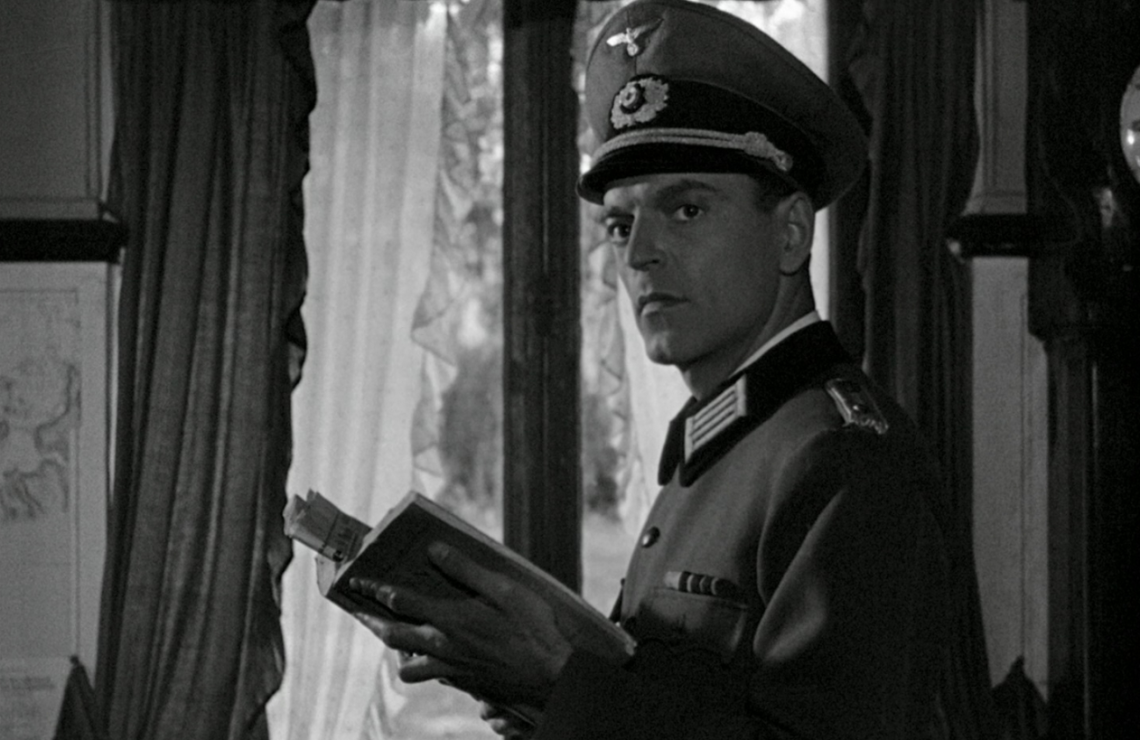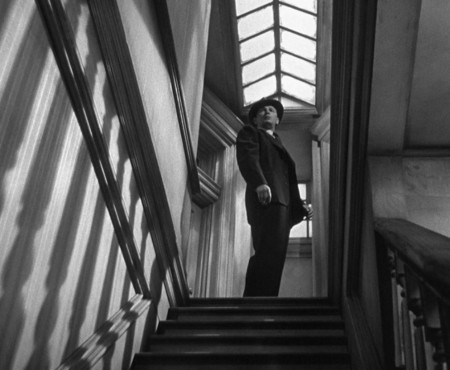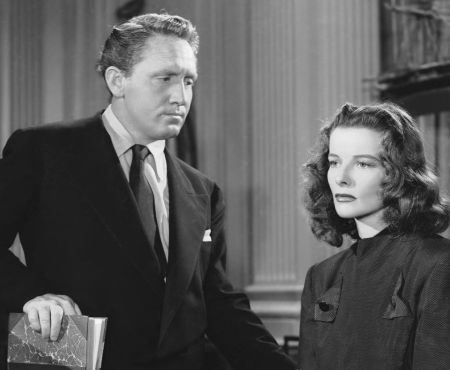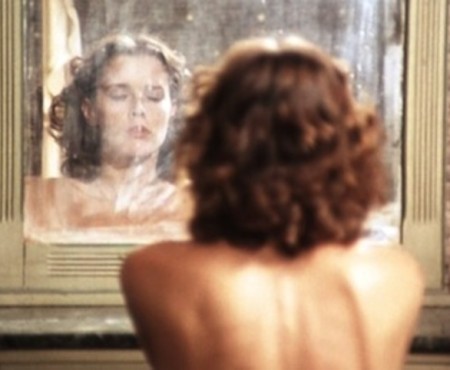Irritated at how often the term “Bressonian” was used by critics to describe his films, French director Jean-Pierre Melville once declared that “it’s Bresson who’s always been Melvillian.” While not technically true (Les Anges du Péché, released five years before Melville’s first feature, already exhibited the unmistakable Robert Bresson style), the claim elucidates the similar paths of these two seemingly disparate figures. Both of them worked toward a language of expressive blankness, where faces and gestures—whether in a rural parish or an underworld hideout—achieved a mysterious spiritual distillation. And both were profoundly affected by the German occupation of France in the early 1940s, with Bresson spending time incarcerated and Melville joining various rebel groups. Indeed, for his 1949 feature debut, Le Silence de la Mer, Melville chose to adapt a short story by Vercors (the nom de plume of novelist Jean Marcel Bruller), a famous text that had been clandestinely published and furtively passed around among members of the Resistance.
Getting the film made turned out to be a venture of its own. Uneasy about the potential vulgarization of his work, Vercors allowed the screen adaptation to take place only after Melville agreed to submit the finished film to former members of the Resistance—and that the negative would be burned if it didn’t meet with their approval. Not that getting the negative was easy: Unable to join a filmmakers’ union, Melville had to make do with little money, ragged film stock, and two cinematographers walking off the set. Things began to fall into place when he met Henri Decaë, a army cameraman who’d become Melville’s most important collaborator in the cinematic visualization of Vercors’ novel, as well as a noted cinematographer in later movies by Truffaut, Chabrol, and Malle. The behind-the-scenes struggles of Le Silence de la Mer, in fact, were the sort of labors that made Melville a fraternal figure to the critic-turned-auteur agitators of the French New Wave, who saw him as an outsider breaking into the industry through resolve, ingenuity and sheer love for the medium.

Melville’s travails were worth it: Le Silence de la Mer is a remarkable debut, stylistically assured and continuously involving. It is also a triumph over challenging material, as Vercors’ book unfolds in a subtle, interiorized rhythm that could have in lesser hands turned into a leaden, static piece of filmmaking. Set mostly inside a living room over the course of several months in 1941, the story chronicles the unusual relationship that grows between an old man (Jean-Marie Robian), his niece (Nicole Stéphane), and the German lieutenant (Howard Vernon) assigned as their tenant. With the rest of their village under Nazi rule, they accommodate the unwelcome guest with a sort of passive rebellion, never acknowledging him in any way. (It was “as if he didn’t exist… as if he were a ghost,” the uncle explains in voiceover.) Instead of the expected Teutonic tyrant, however, they find a gentle soul with a fondness for the arts and an idealistic belief in the good that the war will bring to Europe. The trio develops a nightly routine, with the uncle chewing on his pipe and the niece knitting, both defiantly silent, while the German talks about subjects ranging from his childhood to his love of Beauty and the Beast.
In this largely sealed-off environment, tiny details gain concentrated significance. As the officer recounts an outing with a former fiancée back home, the niece suddenly misses a stitch and pricks her finger with the needle in an involuntary dash of jealousy. Could a romance have blossomed between them at a different time? Long infatuated with French culture, the officer sees the occupation as the marriage between Gallic and German art, a notion thoroughly shaken as he visits Paris and learns of the unspeakable acts committed by the Nazi. “They will extinguish the light completely,” he says painfully to his hosts, a rude awakening that will lead to a fatalistic decision. Shooting the story in the same home where Vercors wrote his novel, Melville uses the confines of a living room to envision an allegorical deep-focus arena where hope and despair, acquiescence and subversion, voice and silence clash and meld. For Vernon’s conflicted Good German, the parlor becomes not merely a stage for his monologues but also something of a confessional, a buffer zone between the high-angled smile of an angelic statuette and the low-angled flames of a flickering fireplace—the most explicit outlet of the spirituality that would run through so much of the filmmaker’s work.
Melville is today best known for such immaculate gangland sagas as Le Doulos and Le Samourai, and there’s a hint of their ritualistic abruptness in the brief, pre-credits scene in which two men wearing trench coats exchange suitcases containing the verboten novel. (Michael Mann, a Melville heir if there ever was one, remembers it in the beginning of Collateral.) But the influence of Le Silence de la Mer extends beyond the director’s own oeuvre, with its claustrophobic yet delicate intensity felt palpably in Astruc’s Une Vie, Nichols’ Who’s Afraid of Virginia Woolf?, and, yes, Bresson’s Diary of a Country Priest. At once terse and lyrical, the film has the sheen of a prestigious literary adaptation but the ardor of underground cinema.




















